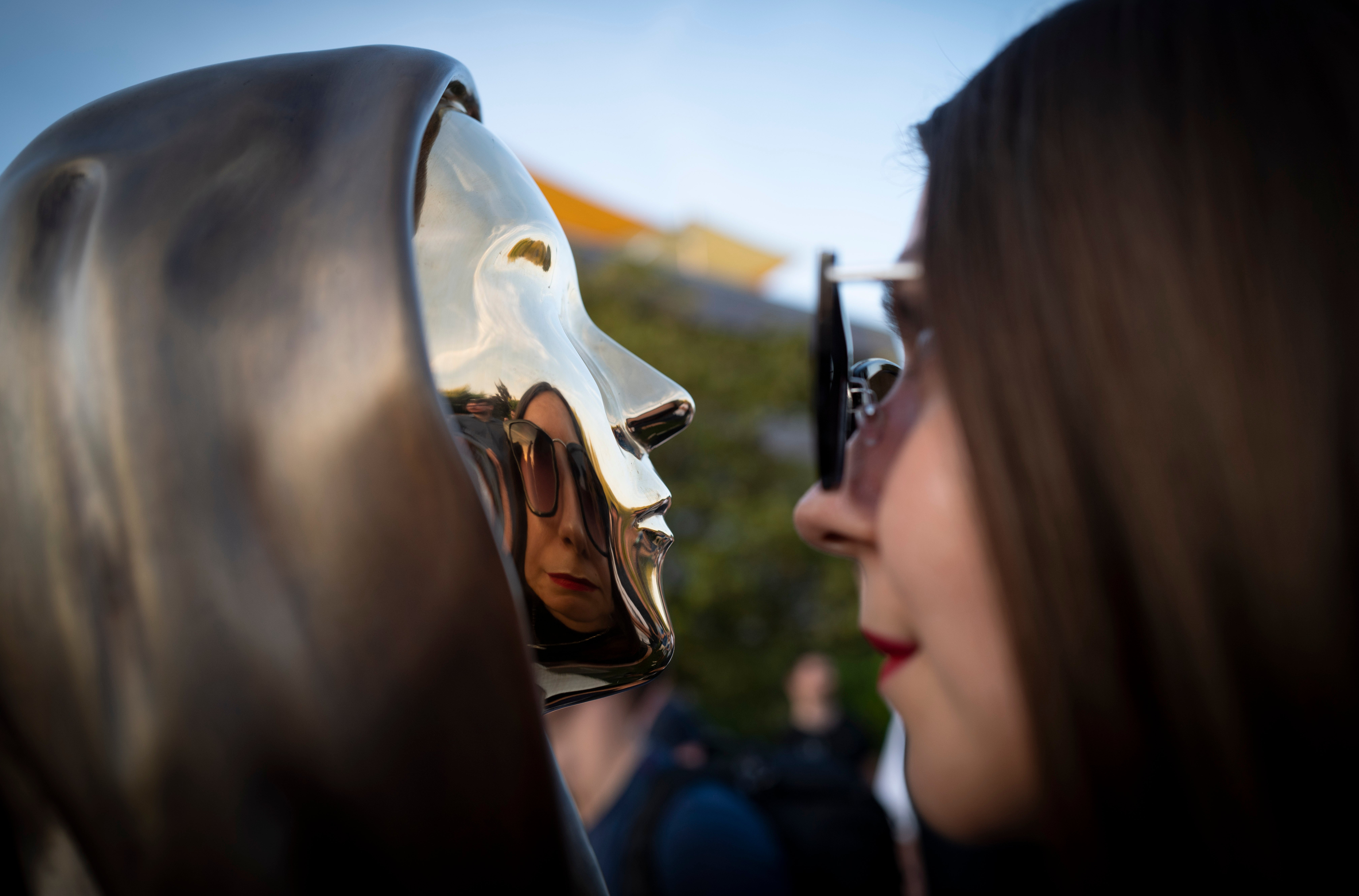Hungary: Statue honoring mysterious Bitcoin founder unveiled
A bronze statue was unveiled in Hungary’s capital on Thursday which its creators say is the first in the world to pay homage to the anonymous creator of the Bitcoin digital currency

Your support helps us to tell the story
From reproductive rights to climate change to Big Tech, The Independent is on the ground when the story is developing. Whether it's investigating the financials of Elon Musk's pro-Trump PAC or producing our latest documentary, 'The A Word', which shines a light on the American women fighting for reproductive rights, we know how important it is to parse out the facts from the messaging.
At such a critical moment in US history, we need reporters on the ground. Your donation allows us to keep sending journalists to speak to both sides of the story.
The Independent is trusted by Americans across the entire political spectrum. And unlike many other quality news outlets, we choose not to lock Americans out of our reporting and analysis with paywalls. We believe quality journalism should be available to everyone, paid for by those who can afford it.
Your support makes all the difference.An imposing bronze statue was unveiled in Hungary’s capital on Thursday which its creators say is the first in the world to pay homage to the anonymous creator of the Bitcoin digital currency.
Erected in a business park near the Danube River in Budapest the bust sits atop a stone plinth engraved with the name of Satoshi Nakamoto the pseudonym of the mysterious developer of Bitcoin whose true identity is unknown.
“We think of Satoshi as the founding father of the whole cryptocurrency industry,” said Andras Gyorfi, a Bitcoin journalist and the initiator of the project. "He created Bitcoin, he created the blockchain technology, he’s the god of our market.”
The featureless face of the bust, wrapped in a bronze hoodie emblazoned with the Bitcoin logo, is heavily polished to make it reflective like a mirror in which viewers can see themselves.
Its creators, sculptors Reka Gergely and Tamas Gilly, sought to portray a human form while staying true to the anonymity of Nakamoto.
“It was a big challenge. It is very difficult to make a portrait sculpture of a person that we don’t know exactly what they look like,” Gilly told The Associated Press. “I hope that through the language of sculpture I have managed to convey the basic idea of Bitcoin, that it belongs to everyone and no one at the same time."
Bitcoin was created in 2008 in the wake of the global financial crisis, and aimed to circumvent traditional financial institutions by developing secure technology for peer-to-peer online transactions without using intermediaries like banks.
Its founding white paper published that year was authored by Nakamoto — a pseudonym which could refer to a person or group of people of unknown gender, age or national origin.
The organizers of the statue project invited Nakamoto to the unveiling, Gyorfi said, in the hopes of finally learning the true identity of the Bitcoin inventor.
But though the event attracted several hundred people, no one come forward to claim responsibility for developing the cryptocurrency that has attracted tens of millions of investors and was adopted this month as legal currency in El Salvador
Gyorfi said the statue is a token of respect to Nakamoto, and an effort to “raise awareness toward blockchain and cryptocurrencies.”
Along with other Hungarian Bitcoin enthusiasts, he collected around $10,000 in cryptocurrency donations to finance the creation of the bust.
But that had to be converted into Hungarian currency, he said, because “unfortunately the sculptors and other service providers don’t accept Bitcoin yet."